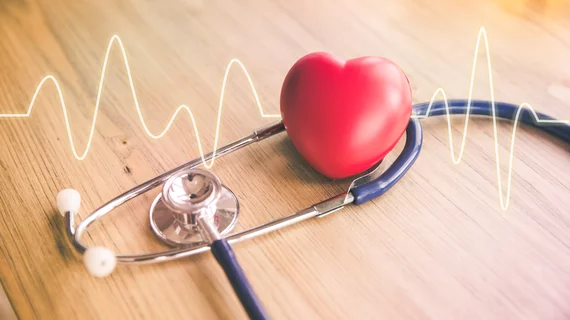Machine learning is playing a key role in predicting all major forms of drug cardiotoxicity, potentially helping reduce late-stage clinical trial failures.
Namely, researchers from the Computational Cardiovascular Science Group of the University of Oxford and Insilico Medicine showed how their “machine learning algorithm can identify drugs that can cause six potential forms of cardiac adverse outcomes from gene expression data,” according to one study author Blanca Rodriguez, from the department of computer science at University of Oxford. The researchers published their findings in Frontiers in Pharmacology.
The study demonstrated the algorithm’s prediction on a curated dataset of transcriptional and molecular profiles, including 1,131 drugs, 35% with known cardiotoxicities, and 9,933 samples. The six forms of drug cardiotoxicity included: cardiac disorders signs and symptoms, cardiac arrhythmias, heart failure, coronary artery disease, pericardial disorders, and myocardium disorders.
Researchers collected the data and then proposed and implemented a chain of classifiers “with nested stacking approach” to classify drugs based on their risk to predict forms of cardiotoxicity. Across all cardiotoxicity types on a leave-drug-out cross-validation strategy, the machine learning method achieves a 0.80 average AUC on 291 drugs.
The leave-drug-out cross-validation strategy models could discriminate between safe and unsafe drugs with a 0.70 AUC across cardiotoxicity types, but the model was more accurate for some specific drug effects and types of agents, including “pericardial disease, cardiac disease and symptoms, heart failure and myocardial disease for antineoplastic, anti-inflammatory, cardiovascular and central nervous system agents, respectively,” researchers wrote.
The model could predict both acute and chronic effects of drugs.
“Using transcriptional and molecular features, all investigated forms of drug-induced cardiotoxicity were predicted with relatively good accuracy using the proposed chain of classifiers model with nested stacking trained with leave-drug-out cross-validation, and for all algorithms considered…” researchers wrote.
Related Cancer Therapy Cardiotoxicity Content:
Succeeding with Cancer: Using Imaging to Avoid Treatment-induced Heart Failure
Providers must rethink traditional imaging approaches to prevent cardiotoxicity in cancer patients
CV programs struggling to keep up with growing demand for cardio-oncologists
Prior cardiotoxicity linked to 30% increased risk of CHF during pregnancy
CV outcomes underreported in pivotal anticancer trials
CDK2 inhibitors protect cancer patients from anthracycline-induced cardiotoxicity
Genetic variants could be key to identifying chemo-induced cardiotoxicity
T2 mapping may uncover cardiotoxic marker early enough to prevent heart failure
Some chemo drugs might be more heart-safe than others
Cardiac MRI-derived T2 mapping may help heart failure patients
Genetic variant linked to chemotherapy-induced cardiomyopathy
Study calls for better collaboration between cardiologists, oncologists
Cardiac monitoring may protect high-risk breast cancer patients against heart failure

